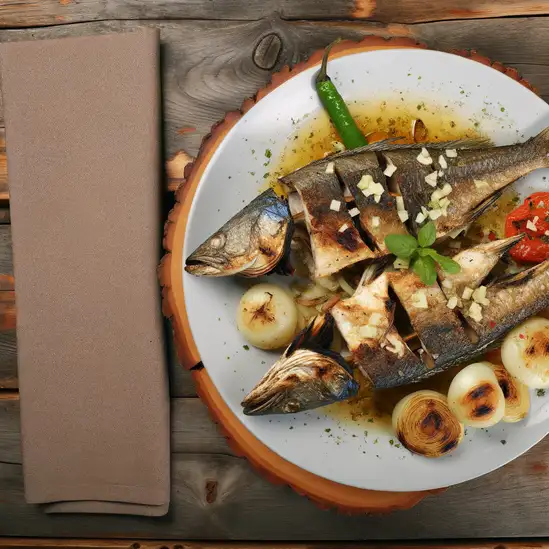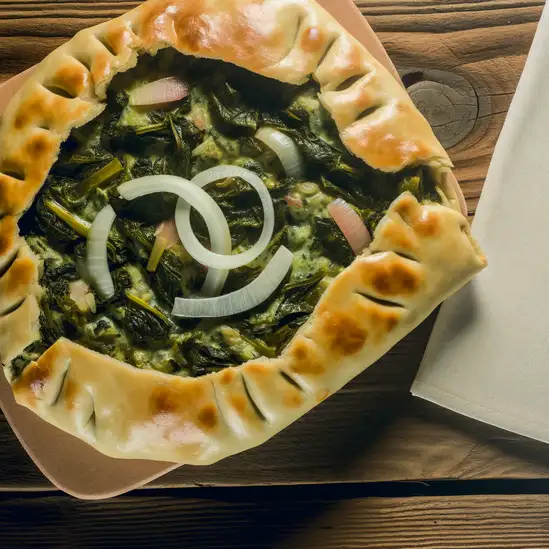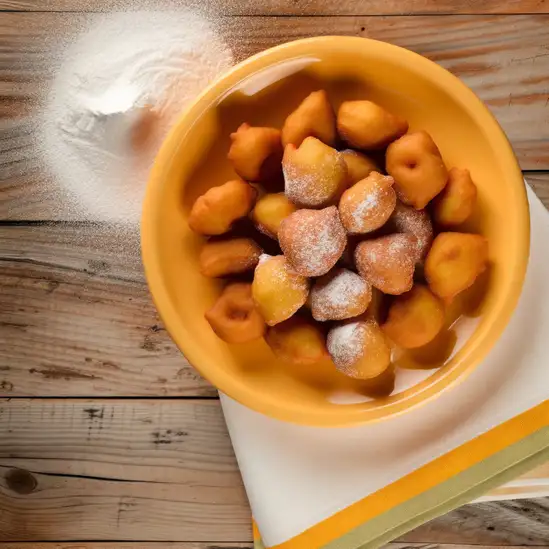



If you ever find yourself dreaming of a place where the Adriatic Sea sparkles like liquid sapphire and the air carries the scent of pine and salty breeze,Baška Voda should be at the top of your list. This charming coastal town has a laid-back vibe that instantly makes you feel at home,like you’ve stumbled upon a favorite summer spot that locals have quietly cherished for years. Walking along the waterfront,you’ll hear the gentle lapping of waves mingling with the laughter of families and the clinking of glasses from cozy seaside cafes. The town itself is a delightful mix of old-world charm and vibrant energy. Narrow cobblestone streets wind through whitewashed houses with terracotta roofs,leading you to bustling markets where fresh figs,olives,and sun-ripened tomatoes tempt your taste buds. The smell of grilled seafood wafts through the air,inviting you to savor a plate of freshly caught fish paired with a glass of crisp Croatian white wine. There’s a rhythm here,a slow dance between relaxation and adventure. What really sets Baška Voda apart is its connection to nature. Beyond the beach,you can hike up to the Biokovo mountains,where panoramic views stretch endlessly,or dive into crystal-clear waters teeming with colorful marine life. Whether you’re sipping coffee at dawn,watching fishermen haul in their catch,or simply soaking up the golden sunset,Baška Voda feels like a warm embrace—a place where time slows down just enough for you to truly breathe and savor every moment.
The information on this page is currently being reviewed by Tripkliq and should be used as a guide only
Eng word: Hello
Eng pronunciation: Bohk
Local language: Bok
Eng word: Goodbye
Eng pronunciation: Doh-vee-jen-ya
Local language: Doviđenja
Eng word: Thank you
Eng pronunciation: Hvah-lah
Local language: Hvala
Eng word: How much
Eng pronunciation: Koh-lee-koh
Local language: Koliko
Eng word: Toilet
Eng pronunciation: Toh-ah-let
Local language: Toalet
Eng word: Help me
Eng pronunciation: Poh-moh-zee mee
Local language: Pomozi mi
Eng word: Yes
Eng pronunciation: Dah
Local language: Da
Eng word: No
Eng pronunciation: Neh
Local language: Ne
Eng word: Excuse me
Eng pronunciation: Oh-proh-stee-teh
Local language: Oprostite
Baška Voda has roots dating back to ancient times, with evidence of human settlement from the Bronze Age. Archaeological finds suggest that the area was inhabited by the Illyrians and later by the Romans.
During the Roman era, Baška Voda was part of the Roman province of Dalmatia. Remnants of Roman architecture, such as villas and mosaics, have been discovered in the area.
In the Middle Ages, Baška Voda was part of the Croatian Kingdom. The area saw the construction of several churches and fortifications, reflecting its growing importance.
The Church of St. Lawrence, built in the 18th century, is one of Baška Voda's most significant historical landmarks. It showcases beautiful Baroque architecture and serves as a cultural and religious center.
During the early 19th century, Baška Voda came under French rule as part of the Napoleonic Kingdom of Italy. This period brought modernization and new administrative structures to the region.
In the late 19th and early 20th centuries, Baška Voda was part of the Austro-Hungarian Empire. This era saw significant development in infrastructure, including the construction of roads and public buildings.
The early 20th century marked the beginning of Baška Voda's transformation into a tourist destination. The first hotel, Slavija, was built in 1936, attracting visitors to its beautiful beaches and clear waters.
During World War II, Baška Voda was occupied by Axis forces. The local population played a role in the resistance movement, contributing to the eventual liberation of the area.
After World War II, Baška Voda experienced rapid growth and modernization. The construction of new hotels, restaurants, and recreational facilities helped establish it as a premier tourist destination on the Adriatic coast.
In Baška Voda, the most common Power Adaptor is Type C, Type F.



A method of cooking meat and vegetables under a bell-like lid, often featuring lamb or octopus, slow-cooked with herbs and potatoes.

Fish grilled on a barbecue, typically seasoned with salt and served with a side of vegetables or salad.

A savory pie filled with Swiss chard and onions, encased in thin dough, typically served with olive oil.

Small, sweet doughnuts flavored with citrus and often dusted with powdered sugar, popular during festive seasons.

Freshly caught fish, often grilled and served with a drizzle of olive oil, lemon, and local herbs.

A traditional Dalmatian beef stew, marinated in vinegar and spices, slow-cooked with prunes and served with gnocchi.

Cured ham from the Dalmatian region, known for its rich flavor, often served with cheese and olives.
If you ever find yourself wandering through Split,it’s like stepping into a living,breathing storybook where ancient history and vibrant modern life dance together effortlessly. The moment you stroll along the Riva promenade,the salty breeze from the Adriatic mingles with the aroma of fresh espresso and grilled seafood wafting from nearby cafés. Locals chat animatedly in the sun-dappled squares,their laughter blending with the distant hum of boats bobbing gently in the harbor. There’s a laid-back energy here that feels both timeless and alive,inviting you to slow down and soak it all in.
Split’s heart beats strongest in Diocletian’s Palace,a sprawling Roman fortress that’s less a museum and more a neighborhood where people live,shop,and gather. Walking through its ancient stone alleys,you’ll catch glimpses of colorful markets,artisan shops,and cozy taverns tucked into centuries-old walls. At night,the city transforms as lanterns flicker on,and the sound of live klapa singing—traditional a cappella harmonies—drifts through the air,wrapping you in a warm,soulful embrace.
What really makes Split unforgettable is how effortlessly it blends the old with the new. You can savor a plate of fresh octopus salad while watching fishermen haul in their catch,then wander to a rooftop bar for a cocktail as the sun sets behind the islands. It’s a place where every corner tells a story,every meal feels like a celebration,and every moment invites you to become part of its ongoing tale.
If you ever find yourself wandering through the sun-drenched streets of Dubrovnik,you’ll immediately feel like you’ve stepped into a living storybook. The city’s ancient stone walls rise proudly against the sparkling Adriatic,and as you stroll along the marble-paved Stradun,the salty sea breeze mingles with the scent of fresh pine and blooming bougainvillea. There’s a rhythm here—a gentle hum of life where history and modern charm dance together effortlessly.
Dubrovnik’s character is woven into every corner:the clatter of café cups,the murmur of locals chatting in cozy taverns,and the distant call of seagulls overhead. You can almost taste the city in the air—briny and fresh,with hints of grilled seafood and ripe figs from the markets. Sitting at a seaside restaurant,watching the sun dip behind the fortress walls,you’ll savor dishes bursting with Mediterranean flavors,paired with a glass of crisp Croatian white wine.
What makes Dubrovnik truly special is how it balances its rich past with a vibrant present. The city’s narrow alleys invite exploration,revealing tucked-away galleries,artisan shops,and lively squares where music spills out into the streets. Whether you’re tracing the footsteps of ancient mariners or simply soaking up the golden light on a quiet terrace,Dubrovnik feels like a warm embrace—inviting,timeless,and utterly unforgettable.
Imagine stepping into a sun-drenched town where lavender-scented breezes mingle with the salty kiss of the Adriatic Sea—that’s Hvar for you. From the moment you wander through its ancient stone streets,there’s a relaxed yet vibrant energy that wraps around you like a warm embrace. The sunlight bounces off terracotta rooftops,and the sound of laughter spills out from cozy cafés where locals sip espresso and chat animatedly. It’s a place where history and modern life dance effortlessly together.
As you stroll along the harbor,sleek yachts bob gently beside fishing boats,and the air carries the faint aroma of grilled seafood and fresh herbs. The town’s medieval walls and the imposing fortress overlooking the bay tell stories of centuries past,while the lively markets burst with ripe figs,olives,and sun-ripened tomatoes. At sunset,the sky blazes in shades of pink and gold,and the waterfront buzzes with music drifting from open-air bars,inviting you to linger just a little longer.
What makes Hvar truly special is its blend of authenticity and joie de vivre. It’s not just a place to see but a place to feel—whether you’re savoring a glass of local Plavac Mali wine,exploring hidden coves by boat,or simply watching the world go by from a shaded terrace. Hvar’s charm lies in its ability to make you slow down,breathe deeply,and soak in the simple pleasures of life by the sea.
If you ever find yourself wandering the Dalmatian coast,Zadar is one of those places that sneaks up on you with its quiet charm and unexpected magic. The moment you step onto its ancient stone streets,there’s this warm,timeless feeling—like the city is gently humming a tune just for you. The salty breeze from the Adriatic mingles with the scent of fresh pine and blooming jasmine,wrapping around you as you stroll along the waterfront. It’s a place where history isn’t just in museums; it’s alive in the crumbling Roman ruins,the medieval churches,and the lively squares where locals gather to chat and sip coffee.
What really sets Zadar apart is its playful spirit. You’ll hear it in the waves as they dance through the Sea Organ,an extraordinary installation that turns the sea’s movement into haunting melodies. And just a few steps away,the Sun Salutation lights up the night with a mesmerizing display of colors,making the waterfront feel like a celebration of nature and art. Grab a seat on the stone benches,watch the sun dip below the horizon,and you’ll understand why Alfred Hitchcock once called Zadar the most beautiful sunset in the world.
The city’s vibe is relaxed but vibrant,with cozy konobas serving up fresh seafood and local wines that taste like the essence of the region. Whether you’re wandering through the bustling market,exploring narrow alleys,or simply soaking in the views from a café terrace,Zadar invites you to slow down,breathe deeply,and savor every moment.
Imagine stepping into a place where every narrow cobblestone street whispers stories from centuries past,and the salty breeze from the Adriatic Sea mingles with the scent of fresh pine and blooming bougainvillea. That’s Trogir for you—a charming,sun-drenched town that feels like a living museum but with a lively,warm heartbeat. As you wander through its maze of medieval alleys,you’ll catch glimpses of ancient stone buildings,ornate churches,and cozy cafés spilling out onto tiny squares where locals sip espresso and chat animatedly.
The vibe here is effortlessly relaxed yet rich with history and culture. You can hear the gentle lapping of waves against the harbor,the distant call of seagulls,and the soft murmur of conversations in Croatian,Italian,and English. At sunset,the golden light bathes the old town in a magical glow,making it the perfect time to savor a plate of fresh seafood—imagine tasting the briny sweetness of grilled fish paired with a crisp local white wine while watching fishing boats bob gently in the harbor.
What makes Trogir truly special is how it balances its deep-rooted heritage with a welcoming,unpretentious spirit. It’s not just a place to see but a place to feel—where history,nature,and everyday life blend seamlessly. Whether you’re exploring the fortress walls,browsing artisan shops,or simply sitting by the water with gelato in hand,Trogir invites you to slow down and soak in its timeless charm.
If you ever find yourself dreaming of a place where history whispers through narrow stone streets and the sea breeze carries the scent of pine and salt,Korčula is that kind of magic. Walking through its medieval walls feels like stepping into a living postcard—sunlight dapples the terracotta rooftops,and the gentle lapping of the Adriatic invites you to slow down and soak it all in. There’s a rhythm here,a laid-back pulse that makes you want to linger over a glass of local white wine or fresh seafood caught just hours before.
The town’s character is a beautiful blend of old-world charm and vibrant local life. You’ll hear the melodic chatter of locals in the market,the clinking of glasses in cozy tavernas,and maybe even the distant strum of a guitar during an impromptu street performance. Korčula’s narrow alleys are lined with fragrant lemon trees and bursts of bougainvillea,and every corner seems to tell a story—from the ancient cathedral to the tiny artisan shops where you can find handcrafted olive oil or honey.
What really sets Korčula apart is its sense of place—rooted in tradition but alive with warmth and welcome. Whether you’re savoring a plate of black risotto while watching the sunset paint the sky in fiery hues or wandering the quiet beaches where the water is impossibly clear,you’ll feel like you’ve discovered a slice of the Adriatic that stays with you long after you leave.
Vendors renting beach chairs and umbrellas may charge higher rates to tourists, especially if prices are not clearly displayed.
Tourists exchanging money at unofficial exchange offices may receive unfavorable rates or hidden fees.
Scammers create fake rental listings online, asking for deposits upfront. Tourists arrive to find the property doesn't exist or is already occupied.
Unlicensed individuals may sell fake or subpar tours, leaving tourists disappointed or stranded.
Tourists may be charged excessive fees for parking, especially in private lots near the beach. Some attendants may claim higher rates than officially posted.
Some restaurants may add extra items or inflate prices on the bill, assuming tourists won't notice or challenge the charges.
Some taxi drivers may take longer routes or refuse to use the meter, charging tourists inflated fares.
The possession, use, and distribution of illegal drugs are strictly prohibited in Baška Voda, Croatia. Croatian law imposes severe penalties for drug-related offenses, including fines and imprisonment. Tourists should avoid any involvement with illegal drugs to ensure they do not face legal consequences.
In Baška Voda, Croatia, smoking is generally allowed in outdoor public spaces. However, smoking is prohibited in enclosed public areas such as restaurants, bars, and public transportation. Some establishments may have designated smoking areas. It is always a good idea to look for no-smoking signs and follow local regulations to avoid fines.
Vaping in Baška Voda follows similar regulations to smoking. It is generally allowed in outdoor public spaces but prohibited in enclosed public areas. Some restaurants and bars may have specific policies regarding vaping, so it is advisable to ask or look for signs indicating whether vaping is permitted.
What are other people saying about Baška Voda?
Recent Social posts about Baška Voda
There is nothing to show you for now.